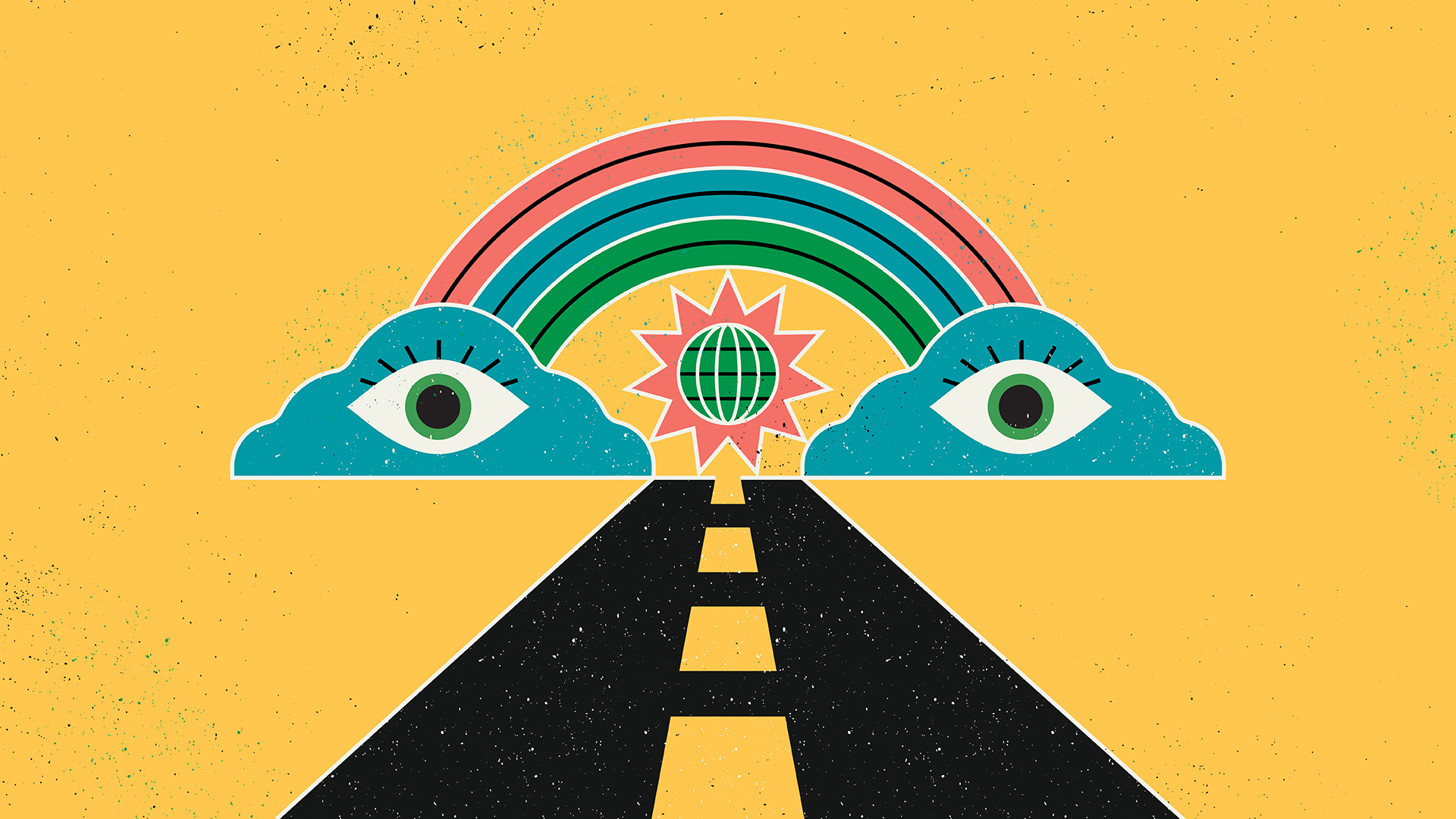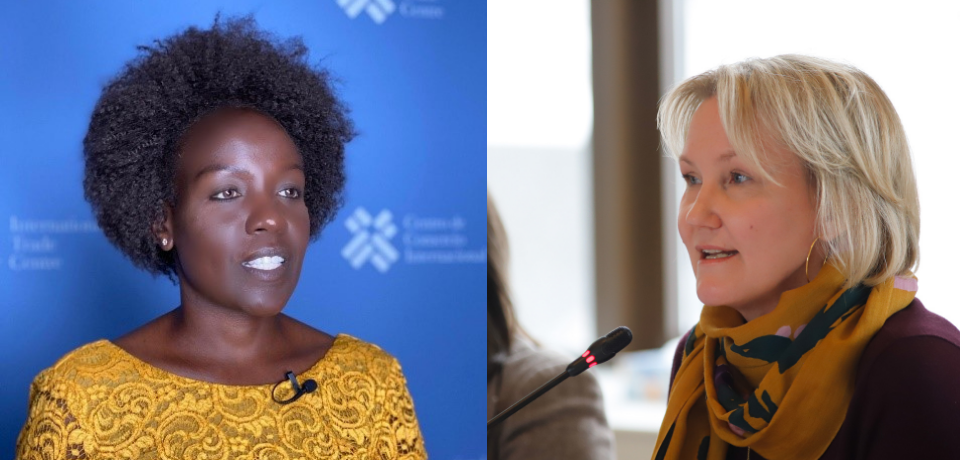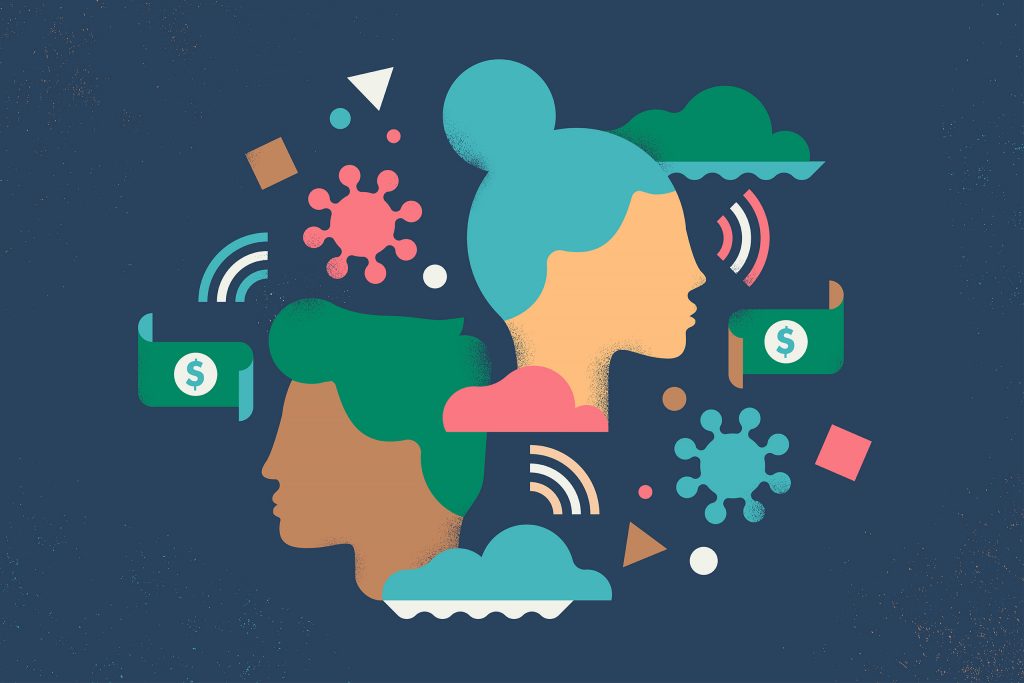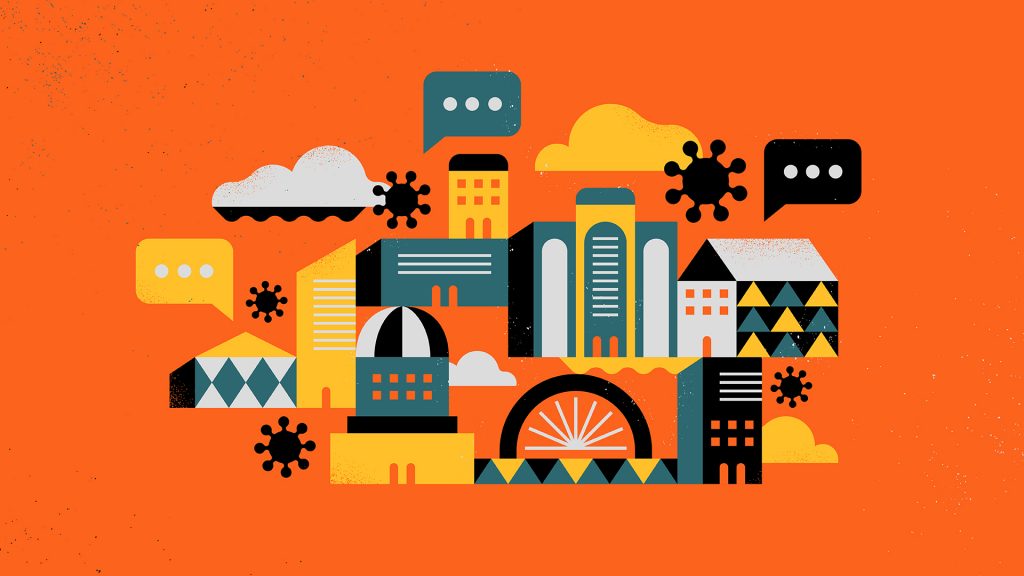Author: Aniqah Zowmi
BiographyAniqah Zowmi
Aniqah Zowmi has a passion for mainstreaming diversity and inclusion at all levels of government and civic organization. She serves in multiple roles: she is currently the Director of Diversity, Equity, and Inclusion for Leading Change Canada; a Regional Focal Point for the United Nations Major Group of Children and Youth (MGCY); and a Youth Advisor to the Canadian Commission for UNESCO (CCUNESCO).
Zowmi served as a Lead Author for the UNESCO Mahatma Gandhi Institute of Education and Peace for Sustainable Development’s publication, a Youth-Led Guide on Preventing Violent Extremism through Education, which was launched at the UNESCO Annual General Meeting in 2017. Zowmi holds a Master of Arts in Social Justice and Equity Studies from Brock University, focused on the intersection between social enterprise and feminist and anti-colonialist theory.

Illustration by Brandon Serbec
Aniqah Zowmi has a passion for mainstreaming diversity and inclusion at all levels of government and civic organizations. She serves in multiple roles: she is currently the Director of Diversity, Equity and Inclusion for Leading Change Canada; a Regional Focal Point for the United Nations Major Group of Children and Youth; and a Youth Advisor to the Canadian Commission for UNESCO. Aniqah is also a member of the Global Centre for Pluralism’s Educating for Pluralism Innovation Lab.
She was interviewed by Nicole Fournier-Sylvester, Manager of Education at the Global Centre for Pluralism on May 25, 2020.
Aniqah reflects on the ways in which the pandemic has affected education and workplace culture, particularly around increasing opportunities for flexibility and access, and strengthening “soft skills” such as empathy and kindness.
The following is a transcript of the interview, which has been edited for brevity and clarity.
Nicole: During this global crisis, issues around equity and inclusion are being exacerbated and revealed in all sectors. What have you observed or witnessed in your work?
Aniqah: Thanks for having me. It is really great to be part of this and, to not only share my insights, but to be able to hear from so many others who have interesting insights from their own work. The pandemic has really emphasized the way that organizations, industries, and sectors have the capacity to change and be flexible and adaptable in a way that we have never seen before.
Coming from the space of diversity, equity and inclusion advocacy, a lot of people from historically underrepresented groups have been pushing for flexible adjustments to spaces and institutions where effective access had been previously hindered. For example, this includes work opportunities or educational access for people from low-income communities, people with disabilities, people from underrepresented groups, and for those with mental health concerns that affect their ability to enter public spaces.
What we have seen with this industry-wide shift in working culture is an ability to be adaptable. I am thinking specifically about building in online work-from-home measures and online education offerings – the emphasis on the availability and accessibility of educational resources has really been highlighted.
There has been a lot advocacy pushing for more accessible education, more flexible work conditions, and more adaptable learning environments. In the past, there has been some resistance to shifting and changing based on these needs.
What we are seeing now is that this does not have to be the reality. There is a capacity for adaptability and flexibility. I think this bodes well for the future. We do not need to go back to ‘business as usual.’ Education does not need to transition completely back to the way it was before. We can look at harnessing the online, flexible, adaptable education opportunities that we are seeing during the pandemic and create more accessible spaces for people – whether that is education or whether that is through simply fostering relationships and connections between people.
I think that we are really understanding the scope of the infrastructure that is available now. That gives us cautious optimism for where we can go in the future.
Nicole: Building on this idea of cautious optimism, what would be some concrete shifts that you would like to see with regards to being adaptable and flexible in these spheres? Can you think of something in your work, in your personal experience, or in any other areas where you would like to see some tangible change as a result of this new way of thinking?
Aniqah: There are so many lessons to be learned from the way that the world is reacting to the pandemic. Having been a student very recently, and looking towards what the future of work will look like, I am interested to see how education institutions might be more willing to shift. Specifically, making changes to their content, delivery of their programs, and their curriculums so that they are more capable of equipping students for the reality of the future.
I have been doing advocacy work within the education space for quite a few years now. What my peers and I try to highlight is that the education system does not necessarily prepare students for the future of work. You go through a degree and you may leave without the skills that are actually relevant to the industry that you find yourself working in.
A lot of these skills are not hard skills like research or writing. The relevant skills are sometimes the soft skills. How do you approach people with compassion? How do you interact with individuals who may have different lived experiences, different intersectional identities? I am seeing now, as a result of the pandemic, that by being in a socially-disconnected situation, people are actually reinforcing more social connections. We are starting to understand just how important all of those soft skills are – being graciously compassionate, overwhelmingly kind, reflective, and being able to adapt to peoples’ lived experiences and identities.
I am hoping that there is an understanding that when it came down to a pandemic – and a lockdown in order to save lives – it was not those hard skills that got us through. It was all of those soft skills that we need to continue to cultivate and encourage within our education systems. This can be done formally through the curriculum that is being delivered, or informally through facilitating more opportunities and spaces for people to develop these skills. I think this will be a great step forward, not just for the education space but also for the future of our work.
Nicole: How can we integrate these soft skills to help prepare young people for the workplace? How do you imagine this could look in the classroom or in programming? How can we build this into curriculum? Are there ways that we can use technology to do this?
Aniqah: There are definitely some ideas and work being done on this around the world. I do not know if I have ever seen it done perfectly, but we should not let perfection be the enemy of the good.
When I was going through my own educational journey, what I found so integral for my professional development was not necessarily the courses that I took, but those extracurricular opportunities. Whether it was through community service or running organizations at my university, being in spaces where I had to rely on and cultivate my own skills was crucial for me. I think that was where I picked up a lot of the soft skills that are so relevant now. I am continuing to develop them still.
I see the opportunity for more service learning experiences, more co-op opportunities, and more flexibility within educational institutions to allow students to be part of multiple initiatives and engagements outside of their schoolwork. What would this mean for educators? Perhaps, being more flexible with students’ schedules outside of classes. How would that translate into educational institutions supporting students who have other commitments? I think that it will be an important way forward, especially if those approaches are grounded in kindness.
One organization that I have seen doing work around kindness and empathy is the UNESCO Mahatma Gandhi Institute of Education and Peace for Sustainable Development. They have been doing a lot of work around how to integrate kindness and empathy into curriculum. A simple way of doing this is by interacting and talking with people who have identities that are different from yours. This is especially important if you come from a relatively homogenous community. Having the opportunity to connect with somebody who has been displaced, or somebody who has a different gender identity than you, allows people to foster connections.
Another organization that does this is NaTakallam, which is a social enterprise that connects displaced people with language learners. Refugees will teach their native tongue to people who are interested in learning, but the organization also connects these refugees to classrooms so that students have a chance to talk to somebody who has experienced displacement. This connection helps students understand and empathize with this person’s reality.
Through this experience, you cultivate these soft skills like empathy, compassion and kindness. All of a sudden, these traumatic experiences are not so abstract. You do not just read a textbook – it is not just “in X year, people went through X tragedy”. All of a sudden, you know someone who has gone through it, and there is a face to the experience. Through this, you develop those soft skills and you can then translate them into your academic or extracurricular activities, and continue to grown and learn.
Nicole: What do you hope that we learn moving forward after the pandemic? We are in a moment of uncertainty and we are not sure how things are going to unfold. What do you hope that we hold on to?
Aniqah: We should really hold on to this sentiment that we are stronger through our cooperation and through our compassion. I have seen examples on social media of people reaching out and connecting – “Oh, you do not have access to groceries? Let me drop some off for you later tonight”. People who are in really tough situations, all of a sudden, have this outpouring of support from people who may themselves also be struggling. All of a sudden, your own resources are not a limitation on how you can support others. That is one thing I really want to see all of us carry forward.
A second thing I would like to see us hold onto is the sentiment that we are not so different. We have been seeing an international rise in populism and nationalism, and the sentiment that we are each part of our own microcosm, our own ecosystem, and that we do not have any interdependence with other parts of the world. I think that this pandemic has actually pushed forward the message that we are all connected and interdependent. We need to continue to cultivate and harness those connections as we move forward.
Finally, I hope to see a tendency towards change and adaptability. There has been this sentiment that industries are failing us; education systems, businesses, healthcare systems are failing us. There has been a reluctance or an inability to change, or perhaps it is just sheer bureaucracy that has prevented change – but what we are seeing now is the capacity of industries to shift.
I hope that as we transition out of this pandemic we are not looking to go back to what we had before, but that we are looking to move to something more equitable. We see now that we do have the capacity to change things that we thought, or were taught to believe, were unchangeable.




